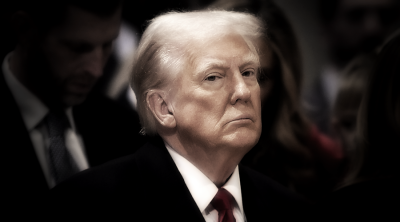
As Malaysia’s Prime Minister Anwar Ibrahim prepares for his upcoming visit to Russia, the country’s potential membership in BRICS+ (Brazil, Russia, India, China, and South Africa +) has come under the spotlight.
There is a growing narrative suggesting that Malaysia’s interest in BRICS+ is a pivot away from Western alliances, but this interpretation misses the strategic and nuanced reasons behind Malaysia’s engagement with this grouping.
Malaysia has long practiced a balanced foreign policy, engaging with both Western and non-Western powers to maximise its national benefits.
This approach, rooted in pragmatic diplomacy, allows Malaysia to leverage opportunities from diverse global partnerships without being constrained by binary geopolitical allegiances.
By joining BRICS+, Malaysia aims to deepen economic cooperation with emerging markets, enhancing trade, investment, and technological exchange.
This engagement complements Malaysia’s existing relationships with Western nations and institutions, rather than replacing them.
BRICS+ provides a platform for Malaysia to achieve its developmental goals.
The group’s focus on infrastructure development, sustainable growth, and technology transfer resonates with Malaysia’s domestic priorities.
BRICS+ inclusive economic agenda aligns with Malaysia’s objectives, offering additional avenues for achieving national development.
The fear that BRICS+ membership would adversely affect foreign direct investments (FDIs) is unfounded. BRICS+ nations offer vast markets with growing middle classes and abundant investment opportunities.
The group’s emphasis on economic cooperation without political strings attached creates a stable and attractive environment for investors.
The perception that BRICS+ is an anti-Western entity oversimplifies the group’s role and intentions. BRICS+ was established to accelerate economic development and foster cooperation among emerging markets.
Its focus areas include trade, finance, agriculture, health, education, science, technology, innovation, and environmental sustainability.
The organisation serves as a dialogue forum where members can collaborate on these crucial issues without the pressures of geopolitical alignment.
Critics often frame BRICS as a counter-balance to Western hegemony, suggesting that countries joining the group are inherently taking a stand against Western influence.
However, this binary viewpoint overlooks the reality that BRICS+ provides an additional platform for economic cooperation, complementing existing Western-led institutions like the IMF and the World Bank.
Participation in BRICS+ does not necessitate an anti-Western stance. Countries like India maintain strong ties with both BRICS+ and Western alliances, leveraging the economic benefits from both spheres.
This demonstrates that engagement with BRICS+ can be driven purely by national interests and the desire for diversified economic partnerships.
By considering BRICS+ membership, Malaysia is exercising its sovereign right to engage in global economic diplomacy.
This move ensures Malaysia remains competitive and relevant on the international stage.
Joining BRICS+ should not be viewed as an anti-Western move. It is a strategic decision aimed at fostering economic development through diversified partnerships.
Embracing BRICS+ can lead to a more balanced global economic order where mutual interests drive cooperation, ultimately benefiting both developing and developed nations.
Diversifying economic partners through BRICS+ membership can strengthen Malaysia’s economic resilience and reduce dependency on any single bloc.
This strategic diversification is crucial in a multipolar world where economic stability can be enhanced by engaging with multiple partners.
Malaysia’s engagement with BRICS+ aligns with its long-term economic strategies and development plans, making it a practical choice for the nation’s future growth.
BRICS+ intent to complement global economic governance by empowering developing economies contributes to a more balanced and inclusive global economic landscape.
This, in turn, can support global stability and growth, which benefits all, including Western economies.
Read also:
- Starmer’s ‘brick by brick’ only to be overwhelmed by BRICS+
- Charting a new course: Malaysia’s bid for BRICS and the quest for global economic balance
- Navigating the BRICS storm: separating signal from noise
- Bridging horizons: Malaysia and BRICS unite for mutual prosperity
(Dr. Rais Hussin is the Founder of EMIR Research, a think tank focused on strategic policy recommendations based on rigorous research.)
ADVERTISEMENT
ADVERTISEMENT





































